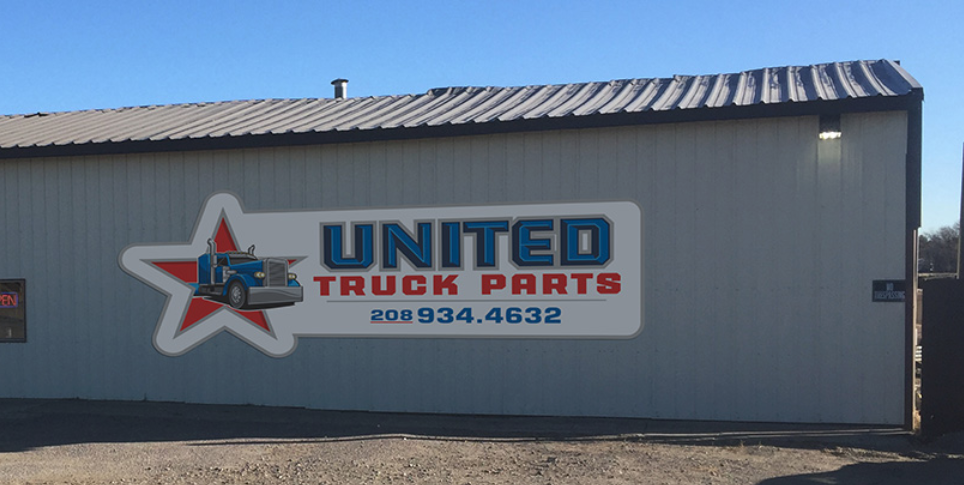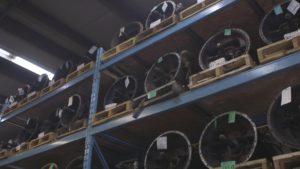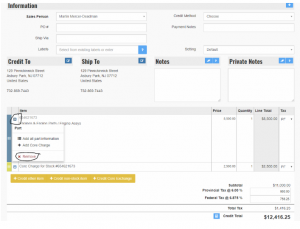
United Truck Parts in Gooding, Idaho has been a part of the TPI family since August of 2017. It was started by Scott Burnett and Curtis Merrill in order to provide the local community with another option for heavy-duty truck parts. Scott is the owner of a truck repair facility and this experience, together with his lifelong passion for trucks, gives him the insight and practical knowledge necessary for the successful launch of a yard. Curtis is the owner of a meat-packing plant in Southern Idaho, and his skills in running a business have helped to ensure a strong start in a very competitive industry for this young company.
In August of 2017, when United formally began, there were two employees in addition to the owners. Today, one year later, Scott and Curtis are able to employ 5 full-time employees and 4 part-time. What factor can explain this expansion in such a short period of time? In a word, relationships: in various ways, United has put an emphasis on relationships as a core value in its business, and this focus seems to be paying off. They want every experience with United to be a good one, and they are grateful to come into work to do something they love, and deal with people that make their day better.

At United, the customer is paramount, and understanding who the customer is and what they might need is a priority. At the moment, farmers in Idaho are experiencing a recession, and so United is pleased to be able to offer them lower-price alternatives for their machinery in the form of used parts, at a time when they need to cut costs. By helping farmers, the company is also giving back to an essential service, and helping out people who dedicate their lives to ensuring there is food on the table.
Jeff Mortenson, the General Manager at United, also recognizes the close bond that exists between a trucker and their truck. As Mortensen observes, changes to a truck become an emotional transaction, as the truck has generally been with the driver “for millions of miles, or in some cases, passed down for generations. Trucks are personalized, each one is different, and they all have the same pieces but different character, it seems.” Understanding a trucker’s point of view in this way leads to customer service that is more thorough, accurate and complete.
A challenge that United has experienced has been connecting with businesses like their own, but Mortensen says that using TPI has helped with this, as “TPI and the users meeting programs [Sellers Groups] have made that so much easier.” He also says that using TPI has helped them find new customers in areas beyond their own, and he can’t emphasize enough how much the TPI staff have done for United, noting “what a world of difference it was when we began to fully utilize what TPI had to offer.”
When asked what advice he could give to someone starting up a yard today, Mortensen emphasized, you guessed it, relationship: “Network. Get to know people. Know your customer. Know who they are, and what they need. Know how to take care of them. At the end of the day, the customer is why we are in business, and why we all get to take care of our families.”
Happy first anniversary, United, and here’s to many more years of building a strong network with deep roots.





